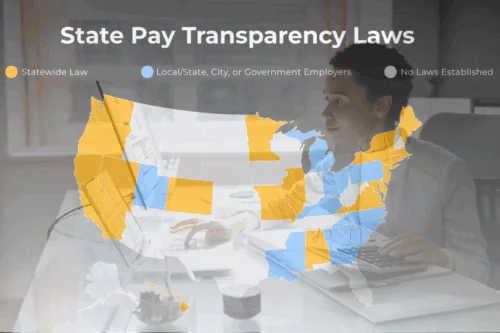Welcome to your essential guide to Illinois state labor laws on breaks. Whether you’re entering the workforce for the first time or seeking to deepen your understanding of employment rights, this guide provides crucial insights into the break entitlements and requirements in Illinois.
From meal and rest breaks to special considerations for different job types and industries, this article outlines everything you need to know to navigate the working environment effectively. Understand these laws to protect your rights and ensure your work life is balanced and fair. Let’s dive in and explore the ins and outs of Illinois state labor laws on breaks, empowering you to thrive in your professional journey.
Understanding Illinois State Labor Laws on Breaks
Understanding Illinois state labor laws on breaks is crucial for employees and employers in Illinois. Below are some critical aspects of these laws:
Mandatory Break Provisions
Illinois law mandates that employees are entitled to meal breaks based on the hours worked. Specifically:
- Employees who work 7.5 continuous hours or more must be given a 20-minute meal break within the first 5 hours of starting their shift.
- These breaks are generally unpaid unless the employee’s contract stipulates otherwise.
Rest Breaks
While not mandated by state law, many employers in Illinois provide shorter 5 to 15-minute rest breaks throughout the workday. These breaks are typically paid and considered part of the workday.
Legal Compliance for Different Work Sectors
The application of break laws can vary depending on the sector. For example, the requirements might differ for factory workers compared to office employees. Employers should ensure they comply with specific regulations applicable to their industry.
This thorough understanding of breaking laws helps maintain a supportive and inclusive work environment. For a more comprehensive understanding, employers and employees can consult the Illinois Department of Labor Fair Labor Standards Division.
Legal Requirements for Break Times in Illinois
The legal requirements for break times are specified clearly under the state labor laws for both full-time and part-time workers in Illinois. Understanding these can help ensure compliance and avoid potential legal issues.
Detailed Break Requirements
Illinois state labor laws provide structured guidelines related to the duration and timing of breaks:
- Meal breaks, as mentioned in the previous section.
- If employees work over 7.5 hours, additional rest periods may be considered based on the total hours worked.
Who Is Covered?
The Illinois One Day Rest in Seven Act (ODRISA) ensures that employees get at least 24 consecutive hours of rest every seven days and a meal period that lasts 7.5 hours or more in each shift.
Documentation and Enforcement
Employers must keep precise records of all breaks given to employees to comply with audits from the Illinois Department of Labor. Failure to accurately document these breaks can lead to fines and penalties. For more details, check the official Illinois General Assembly site.
Types of Breaks under Illinois Law
Illinois state labor laws on breaks categorize breaks into several types, each with specific regulations.
Meal Breaks
These are the primary forms of breaks and are usually unpaid unless the employer’s policy states otherwise.
Rest Breaks
These are shorter than meal breaks, often paid, and last about 5 to 15 minutes, though not mandated by state law.
Breastfeeding Breaks
In addition to the PWFA, Illinois law ensures support for nursing mothers by requiring employers to provide reasonable unpaid breaks for breastfeeding.
- These breaks should be provided as needed by the nursing mother.
- The employer must also offer a private, non-bathroom location for the breaks.
Recovery Breaks
Specific sectors, like construction roles or manual labor roles, might have negotiated recovery breaks to ensure worker safety and health.
These distinctions help employees and employers understand their rights and duties. For broader insights, consider OSHA’s guidelines regarding rest and recovery in workplaces.
Exceptions and Special Considerations
While Illinois state labor laws on breaks are comprehensive, there are exceptions and particular considerations that affect specific workers differently.
Seasonal and Temporary Workers
Due to the intense, seasonal nature of the work, breaks might vary, particularly in agriculture jobs or holiday retail.
Young Workers
Employees under 18 have additional protections and might be entitled to more frequent or prolonged breaks.
Emergency Responders and Healthcare Workers
Due to the unpredictability of their work, there can be exceptions regarding when and how breaks are given.
This information ensures that all workers know their rights under Illinois law regardless of their job type. Employers must adjust their policies to these groups to comply with the law. Check the U.S. Department of Labor for more info.
Employee Rights and Employer Responsibilities
Both employees and employers must be well-informed about the Illinois state labor laws on breaks.
Employee Rights
Workers are entitled to scheduled breaks based on their total working hours. They should also:
- Receive a detailed orientation or access to information on break entitlements.
- Report any violations without fear of retaliation.
Employer Responsibilities
Employers need to communicate break policies and ensure they are adhered to clearly. They must also:
- Maintain accurate work records for audits.
- Provide break facilities that meet health and safety standards.
Adhering effectively to these aspects of Illinois law helps create a supportive work environment. The Illinois Department of Labor FAQs provide more guidance.
Impact of Break Laws on Work Environment
The practical implementation of Illinois state labor laws on breaks offers numerous benefits to the workplace environment.
Enhanced Productivity
Regularly scheduled breaks help maintain high levels of productivity. Workers return refreshed and ready to tackle tasks.
Improved Employee Health
Breaks reduce physical and mental stress, improving employee health and reducing sickness rates.
Increased Job Satisfaction
A fair break policy contributes to job satisfaction and loyalty, reducing turnover rates.
Thus, these Illinois-specific regulations uphold legal standards and promote a healthier, more efficient, and happier workplace. Plus, you may look at the Bureau of Labor Statistics data on productivity in various states.
How Illinois Compares with Other States
Illinois state labor laws on breaks are distinct in several ways compared to other states in the U.S.
Comparison with Neighboring States
Unlike neighboring states, Illinois mandates meal breaks for shifts over 7.5 hours, promoting worker well-being.
National Perspective
Nationally, Illinois falls into a group of states with more structured break laws, prioritizing employee health and productivity.
This regional and national context highlights Illinois’ proactive approach to supporting workplace rights. For further exploration, compare Illinois’ policies with those from other regions at the U.S. Department of Labor’s State Meal Breaks Chart.
FAQs about Illinois State Labor Laws on Breaks
Who qualifies for breaks under Illinois law?
All full-time and part-time employees are entitled to breaks, though the specifics may vary based on shift lengths.
Can my employer deny me a meal break?
No, employers in Illinois must provide a 20-minute meal break if you work 7.5 continuous hours or more. You must take this break within the first 5 hours of work.
What if I work in a small company?
Illinois state labor laws on breaks apply universally, regardless of company size, ensuring worker protection.
Are there additional break rights for pregnant employees?
Pregnant employees are entitled to more frequent or prolonged breaks as reasonably necessary.
Are break durations strictly defined?
Yes, meal breaks must be at least 20 minutes and are required after no more than 5 hours of work.
Is there flexibility in how breaks are scheduled?
While breaks must satisfy legal minimums, employers have some flexibility in scheduling as long as they comply with state laws.
How does Illinois enforce these break laws?
The Illinois Department of Labor handles compliance and can impose penalties on businesses that fail to follow the regulations.
Can I waive my right to breaks?
Under Illinois law, employees cannot waive their rights to compulsory breaks, ensuring that breaks are provided to all eligible workers.
These questions and answers help clarify common concerns and ensure everyone understands their rights and duties under Illinois labor laws.
Conclusion
Understanding Illinois state labor laws on breaks is essential for employers and employees to ensure a healthy, productive workplace. By adhering to these regulations, organizations foster an environment of respect and care for their workforce, resulting in better overall performance and satisfaction.
Compliance with Illinois break laws meets legal requirements and supports an inclusive and supportive work culture. Remember, informed employees and responsible employers contribute to the advancement and success of the entire community.
Ready to take your career or business to the next level while ensuring compliance with diverse employment laws? Join Diversity Employment’s job board today and upload your resume! Here, you can find resources, job listings, and support for enhancing diversity and inclusion in your workplace. Join us now and start making a difference!




